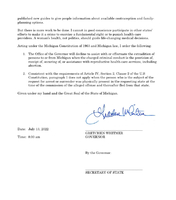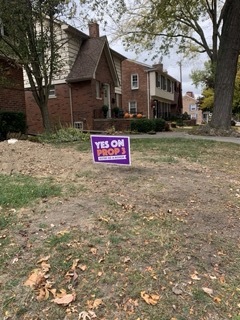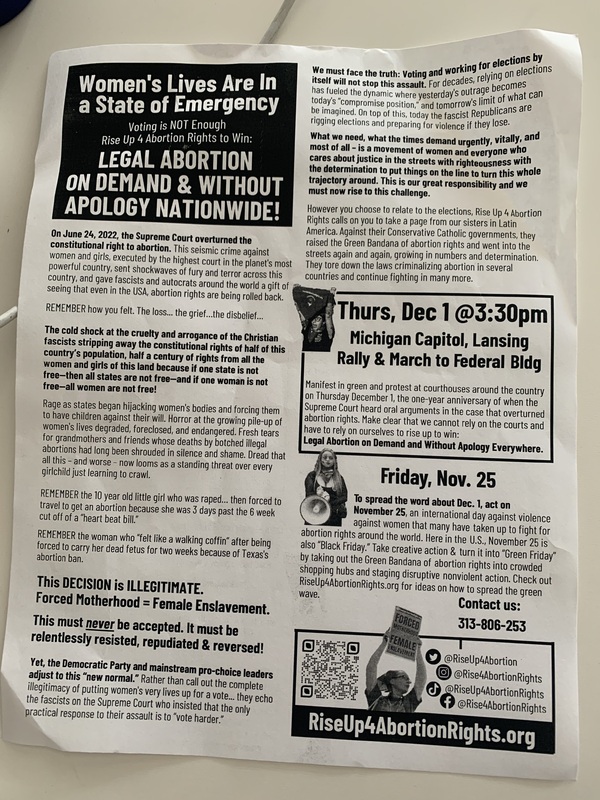2010s to Now
Like the 2000s, during the 2010s Roe v. Wade remained the national law governing abortions in Michigan. In the early parts of this decade attempts were made to limit abortions in Michigan by the Republican led legislature to varying degrees of success.
Prior to the overturning of Roe v. Wade Democratic Governor of Michigan took steps to prevent a ban on abortion. Governor Whitmer filed a lawsuit asking the Michigan Supreme Court to determine if the state's 1931 abortion ban was constitutional in August 2022. (Whitmer, 2022) Governor Whitmer did this proactively in the event that Roe v. Wade was overturned. The governor also used her executive power to protect abortion in other ways. She released an executive order stating that Michigan would not, "cooperate with or assist the authorities of any state in any investigation or proceeding against an individual for obtaining or providing, or assisting another to obtain or provide, any legal reproductive health care. " (Whitmer, 2022) This lawsuit is still making its way through the Michigan legal system.
In January 2022, 67.3% of Michiganders support Roe and 65.7% support repealing Michigan’s 1931 trigger ban on abortion. (Haddad, 2022)
In June 2022, the United States Supreme Court overturned the decades old Roe v. Wade precedent for abortion. (Yu, Erb, 2022). In Michigan, this meant that the prevailing law reverted to the 1931 Penal Code that outlawed abortion. Due to the governor's executive orders and lawsuits, previous injunctions on the 1931 law, and challenges to those injunctions, the legality of abortion remained in Michigan remained up for debeate. (Whitmer, 2022)
In order to settle this question a ballot initiative was started in 2022 to add the right to abortion to the Michigan constitution. (Reproductive Freedom for All, 2022) The group Reproductive Freedom for all collected signatures for the initiative to appear on the ballot and promoted the initiative. This initiative was supported by the American Civil Liberties Union, Planned Parenthood, NARAL, and the Democratic Party. (Reproductive Freedom for All, 2022) This initiative was placed on the ballot 50 years after the Prop B initiative failed in the 1972 election.
In the November midterm election in 2022, Proposition 3 which, "Adds the right to abortion and contraceptive use to the state constitution" passed with 56.7% of the vote. (Yu, Erb, 2022) This was in an election where Democrats saw success at the top of the ballot and took control of the state legislature for the first time in several decades. (Yu, Erb, 2022)
Despite the legality of abortion in Michigan, access to the procedure remains to be an issue. As of 2014 there were only 20 abortion clinics in the whole state. (Harrington, Gould 2017) This is down from 70 in 1992. (Ardorfer et. al., 1998) In 2014, 89% of the counties in the state did not have an abortion clinic and 40% of women in the state aged 15–44 lived in a county without an abortion clinic. (Panetta, Lee, 2018)
Access to abortion and contraceptives is now a a part of the Michigan state constitution. The reality of access to these procedures is still in question. Now that the Democratic party is in control of all three branches of the Michigan government it remains to be seen how this right will be protected and expanded going forward.



